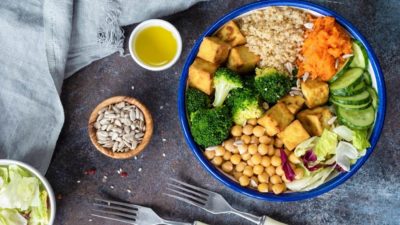Swimming

Nutrition requirements:
Swimming requires both strength and stamina. If you swim as a recreational activity, you don’t need to increase your energy intake as much as swimmers who compete. However, if swimming is a competitive sport for you, your training likely includes some other aerobic activity and weight-lifting so your requirements are considerably higher.
You need larger amounts of complex carbs for energy, increased amounts of protein and some healthy fats.
Key points:
1. If you swim in the morning, don’t skip breakfast – to avoid stomach discomfort, have something small like a fruit and nut bar or a smoothie, then have a proper breakfast afterwards.
2. Hydrate! It’s not easy to tell how much fluid you lose when you’re in a wet environment and you may feel like you don’t need to drink. It can be deceptive so make sure you drink enough water after your swim.
3. You need extra carbohydrates because you burn a lot of energy. The best sources are wholegrains, wholemeal bread and pasta, brown rice, sweet potatoes, fresh and dried fruit.
4. Post-training, you also need to top up your protein intake so make sure to have a protein bar or shake ready, a pack of nuts and dried fruit, or have a proper meal like beans on toast with some greens or a tofu wrap.
5. If you don’t have time between training sessions or go from training to work, make a big smoothie to take with you, add in some oats and nut butter too, so it’s a proper liquid meal to give you quality nourishment.
Sample Meal Plan: If you swim for fun, follow the Active Person meal plan, if you’re training to compete, you’re an Endurance Athlete!
Inspiration: Murray Rose, MenSa Eggleston, Rodolfo Palma, Xavier Desharnais
Xavier Desharnais, professional open water swimmer and champion, on his switch to veganism: “I’ve noticed a lot more energy, and I tend to recover faster from big workouts than before. In swimming, where we train twice a day, from 10-12 times a week, this is a big plus.”







